THE GREEN LINE
ORIGINAL STORY
Café Club: Discover Leslieville’s Hidden Gem, a Living Room-Turned-Community Hub
Art gallery, your friend's place and a co-working space — this unassuming house in Toronto's downtown east end is all that and more.
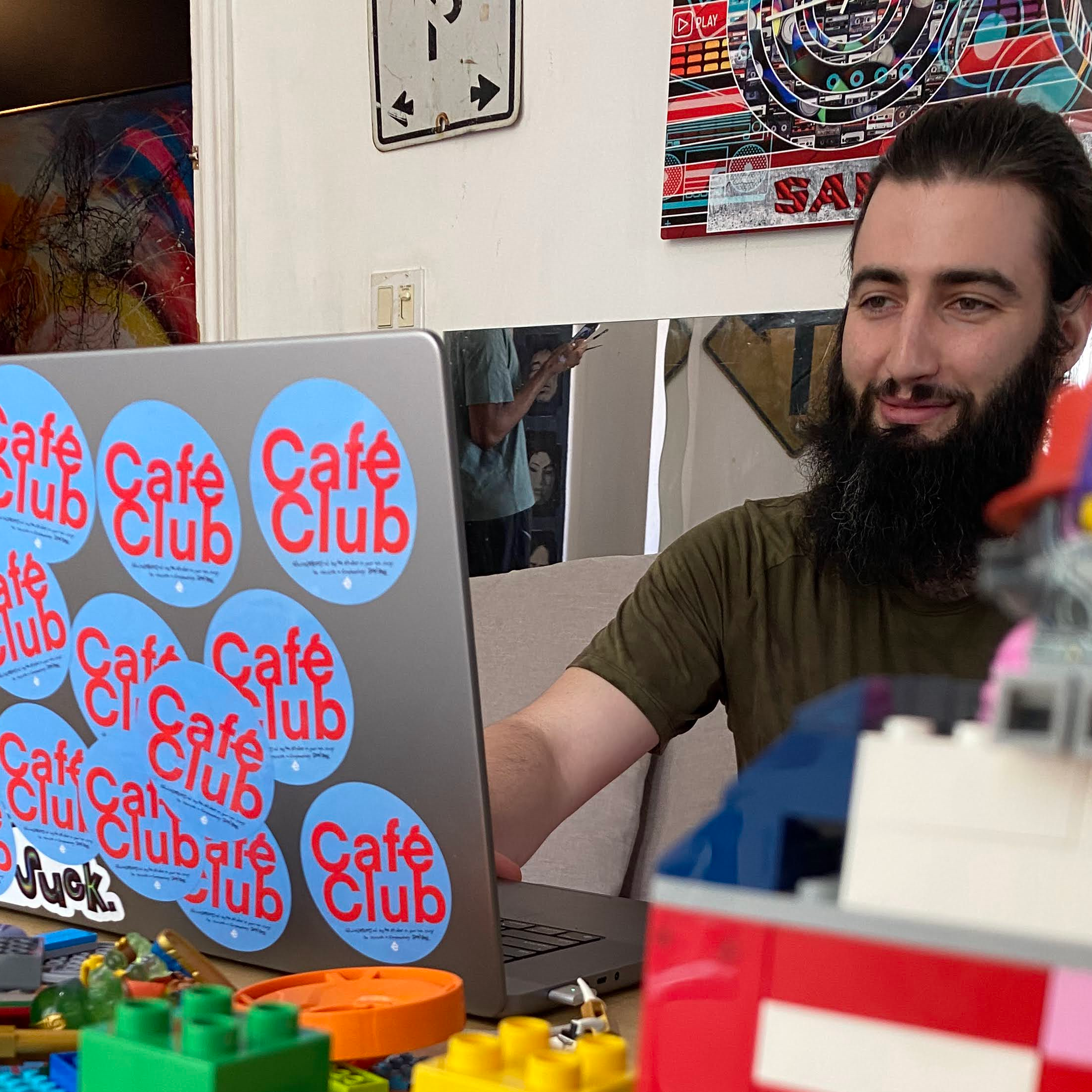
AJ Shoy, Café Club's creator, works next to a Lego version of Café Club.

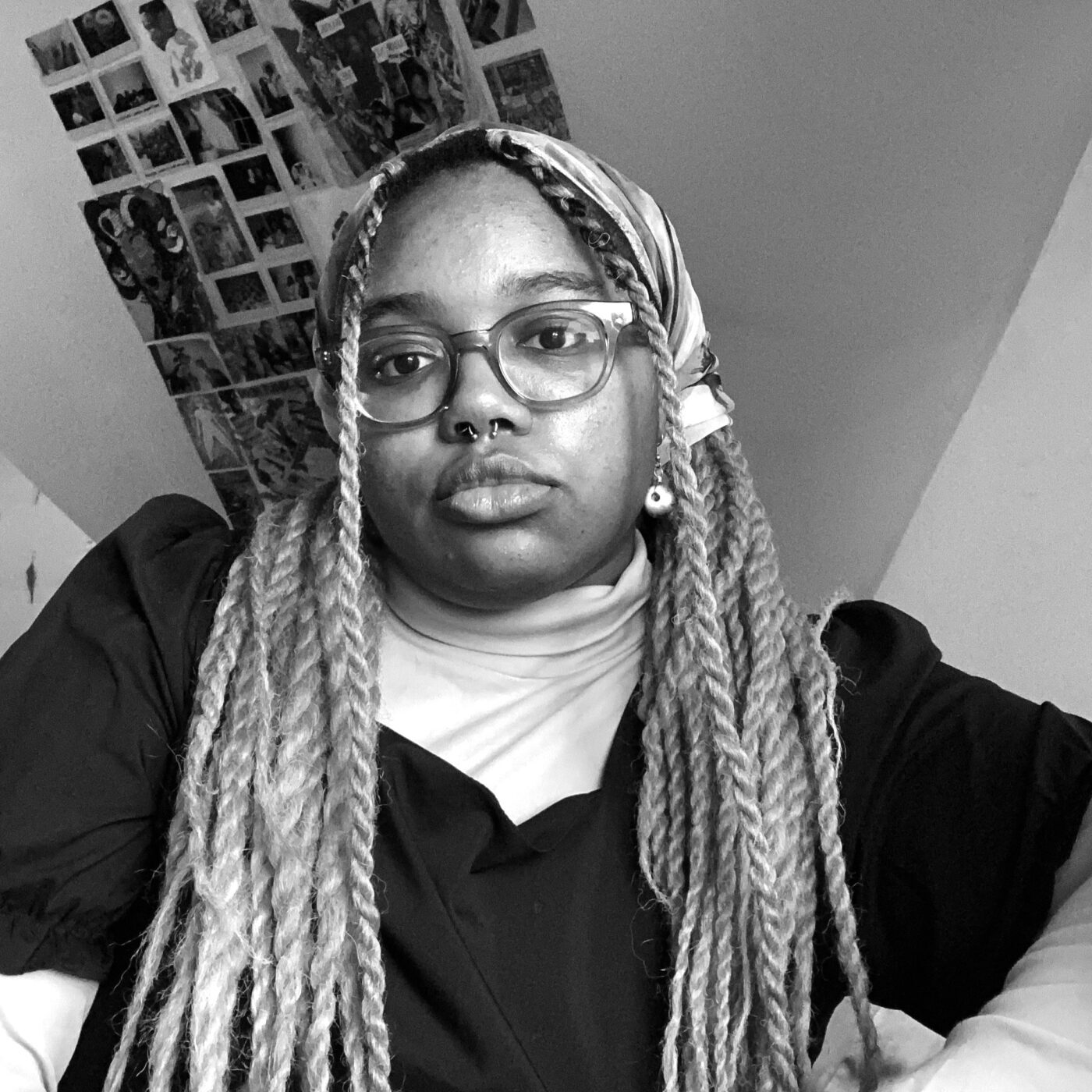
Adele Lukusa
A graduate of TMU, Kitchener native enamoured with Toronto and lover of Jamila Woods. Currently working on supporting mutual aid efforts and unpacking the nuances of Black haircare.
May 29, 2024
Imagine your favourite spot in the city.
It could be a café in the west end, your favourite underrated art gallery nestled in Scarborough, or that friend of yours whose house you never want to leave. Now, imagine if all those spots merged into one space — well, that’s Café Club.
After nearly a decade of ruminating on the idea, AJ Shoy finally bit the bullet and transformed the first floor of his nearly a century-old bay-and-gable home in Leslieville into what most would consider a community coworking space. For Shoy, it’s more of a living room he’s opened to the public.
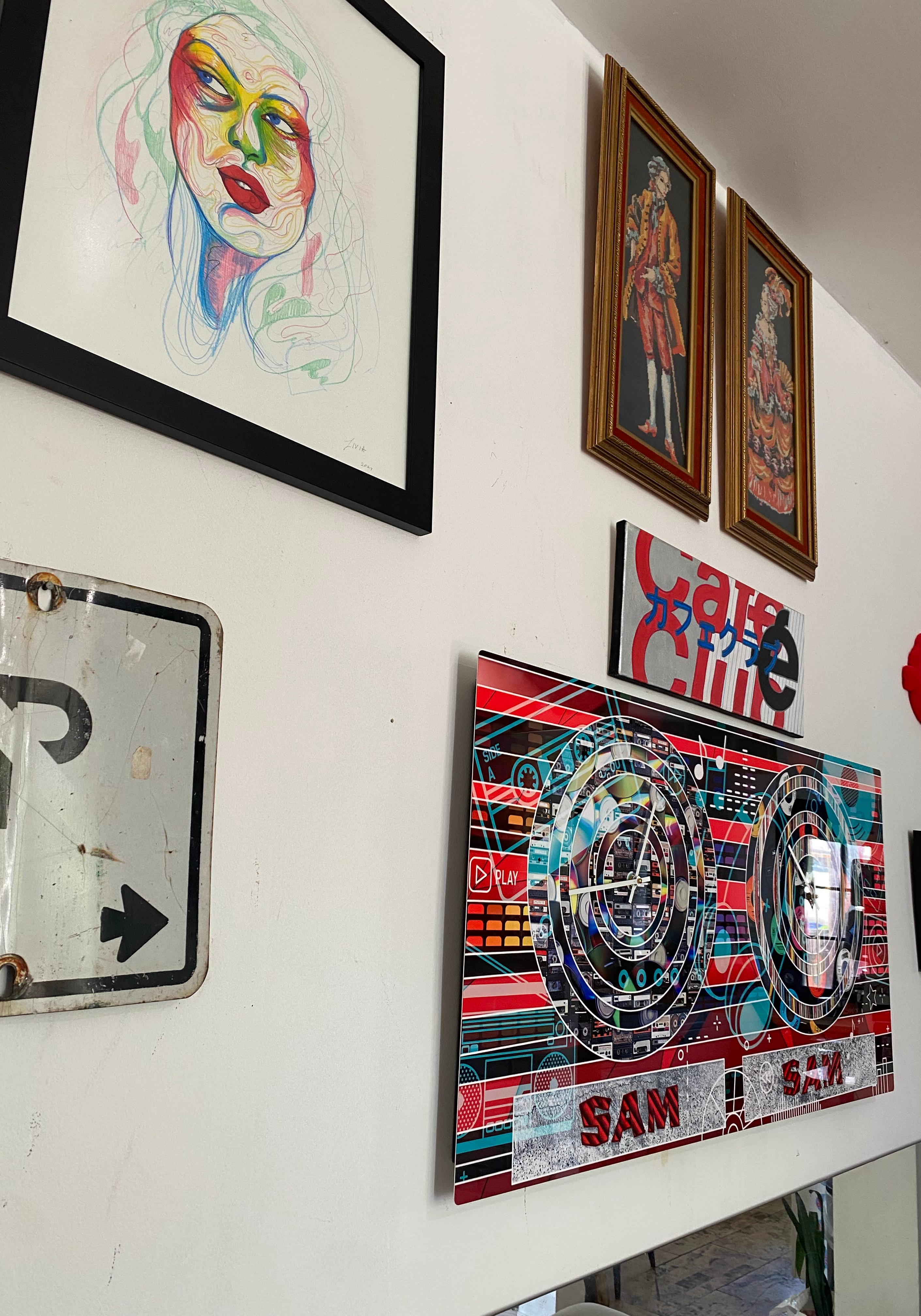
The walls of Café Club feature original artwork from local artists Livia Mezini and Nicholas Ridiculous.

“The younger generation is describing it as a third space,” says Shoy, who opened Café Club last September. “Which is apt because I really wanted to create a space where people felt like they could be themselves.”
A third space, as coined by sociologist Ray Bradbury, is a place beyond the home or the office where folks can connect, and has a low barrier to entry. In a city filled with individualistic commercial spaces, Shoy wanted to give like-minded folks an alternative. He abandoned his original coffee shop idea at the height of the pandemic for something more community-oriented. Now, a $9 entry fee can give you free coffee, tea or water, Wi-Fi, his living room space and the company of like-minded guests.
Visitors have even compared the vibe of Café Club to the nostalgia of “going to your friend's house after school. It’s like when you’d ask your friends ‘Whose house are we going to?’” Café Club gets to be that place, Shoy explains.
By booking through the café’s Instagram DMs or website, guests are welcome to make Café Club whatever they want it to be — from a book club meetup spot to an art showcase and even a casual yoga session between friends.
That attitude carries on to the café's look, as its decor is as eccentric and expressive as its host. There isn’t a corner of the space untouched by art, either those left over from friends of Shoy’s or stooped trash-turned-treasure. From the hand-tufted rugs of Café Club’s logo and a rack of designer clothing by local artist Nicholas Ridiculous to the vintage Sam The Record Man sign and thrifted needlepoint portraits of 18th-century aristocrats, Club Café’s interior design is maximalist but not overwhelming, bridging the warmth of a living space with the chicness of an independent gallery. It’s community-driven interior design that’s constantly in motion, as artists near and far are allowed to let their imaginations run wild, and create bespoke murals and pieces according to their whims.
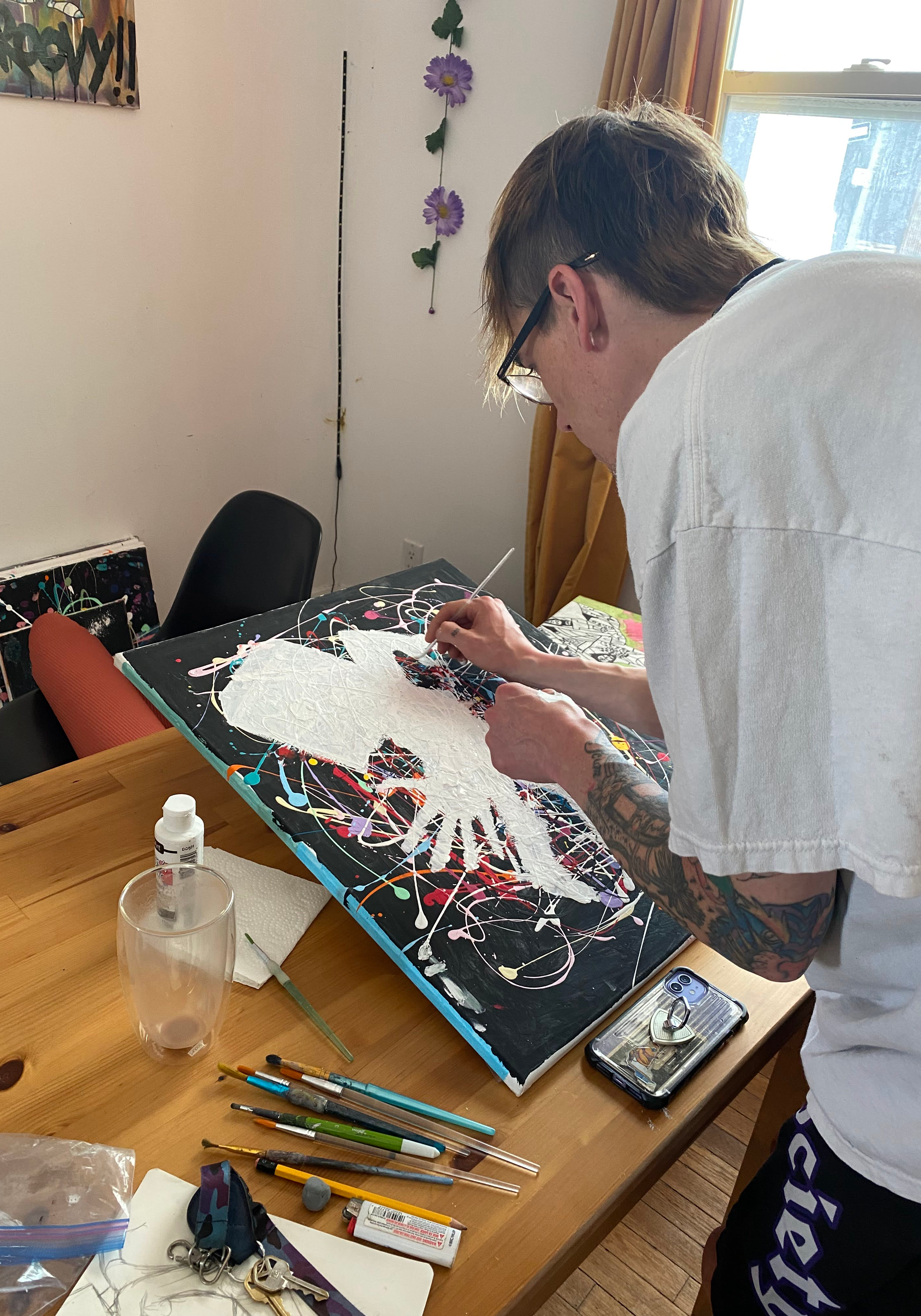
Local artist Nicholas Ridiculous paints an original work for Café Club.

One of Café Club’s newest art pieces is a galaxy-coloured abstract piece that hangs partially on the wall and ceiling of the space by Scarborough-based artist Thomas Triebe-Pay. Like the bulk of Triebe-Pay’s art, the piece is made of recycled or found materials; in this case, it’s spray foam insulation left over from his day job in construction. Inspired by his conversations with Shoy, Triebe-Pay created an abstract piece of foam that sits above the living room’s defunct fireplace, shiny and painted in shades of purple, green, blue and red that fade into one another, and outlined in black.
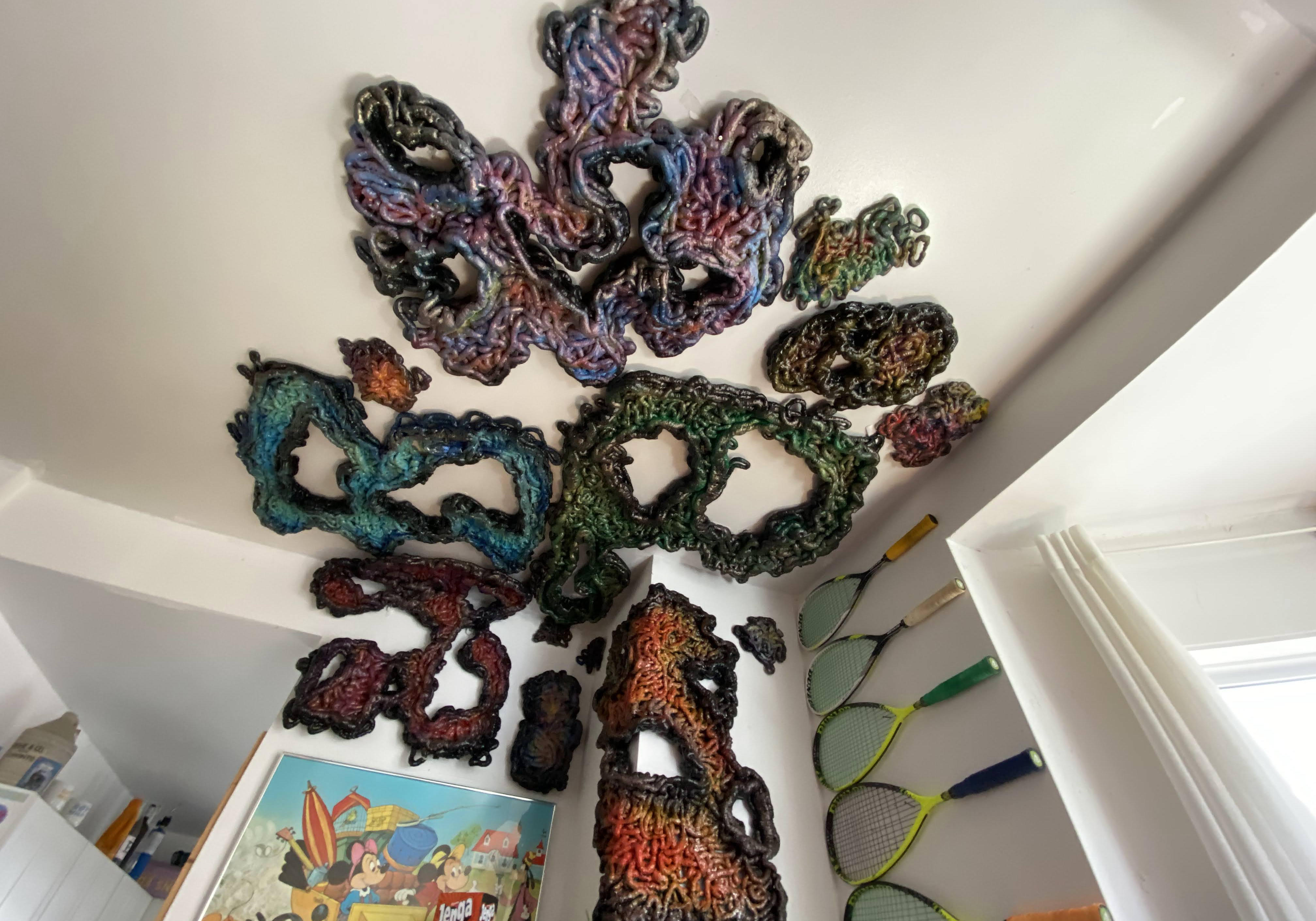
An abstract multicolour sculpture, made by Scarborough-based artist Thomas Triebe-Pay, hangs on the wall and ceiling of Café Club.

“This was just like the perfect combination of space needing art, and artists needing space to show art,” Triebe-Pay explains. With full creative control and no worries about gallery fees, he says he could finally showcase his art for the first time after graduating from the University of Guelph’s studio art program in 2023.
Used to the free resources and gallery spaces at art school, Triebe-Pay was looking for creative and cost-efficient ways to share his work, which is when he stumbled upon Café Club through Instagram. Like most people, Triebe-Pay found out about the unorthodox coworking space through Instagram ads. After a couple of DM exchanges with Shoy, he had himself a new venue for his work.
From his very first chat with Shoy in March, Triebe-Pay fell in love with the café, and regularly visits despite the commute from his home in Scarborough.
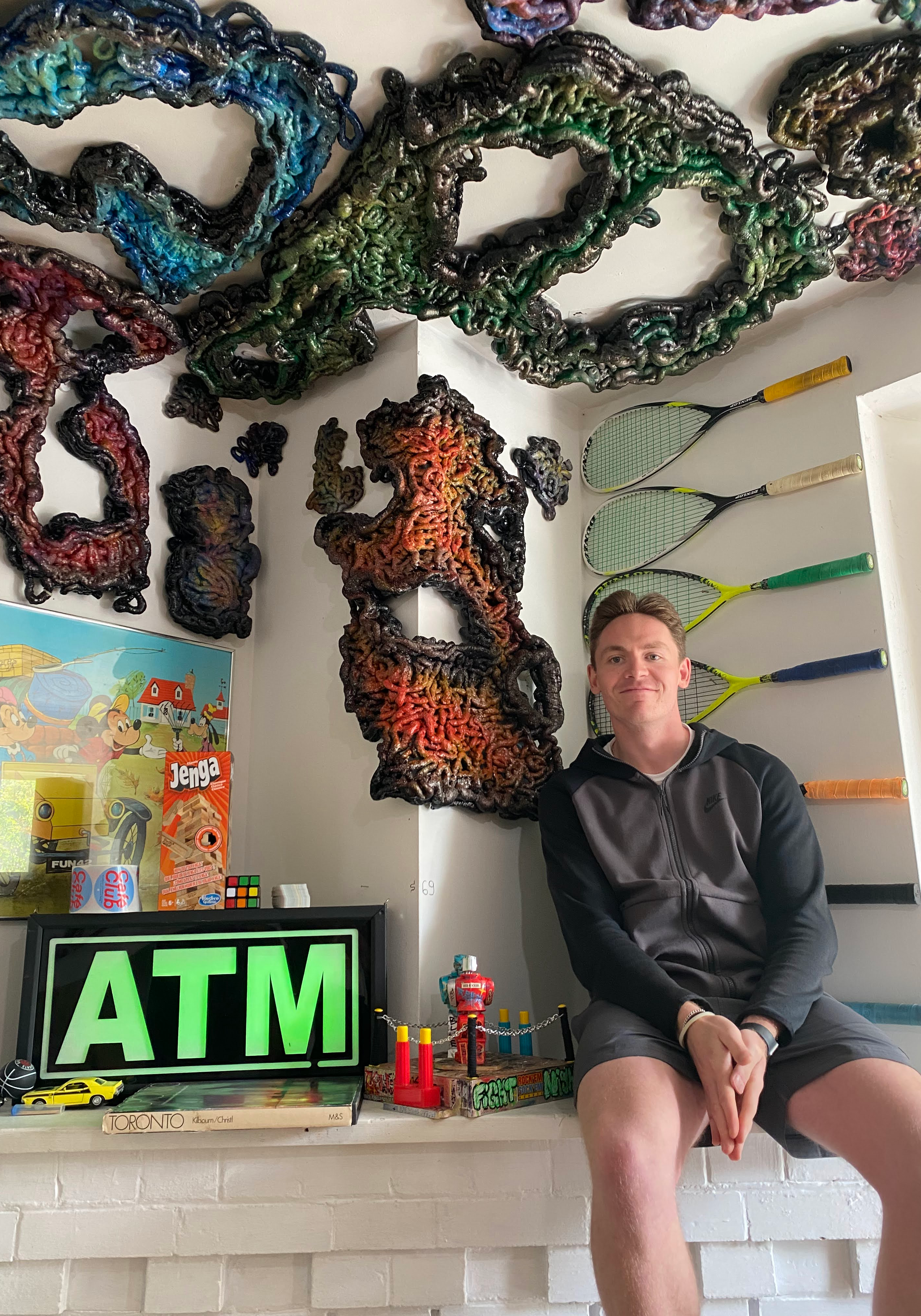
Scarborough-based artist Thomas Triebe-Pay sits next to his sculpture in Café Club.

“He's thought so deeply about this whole need for community public spaces which I, honestly, never really thought of before,” he says. “Talking to AJ really opened my eyes to the way that we can work with each other to benefit everyone as a whole.”
Visiting Café Club inspired more than just Triebe-Pay’s original sculpture. He hopes to eventually create a shared studio in Scarborough inspired by Shoy’s philosophy.
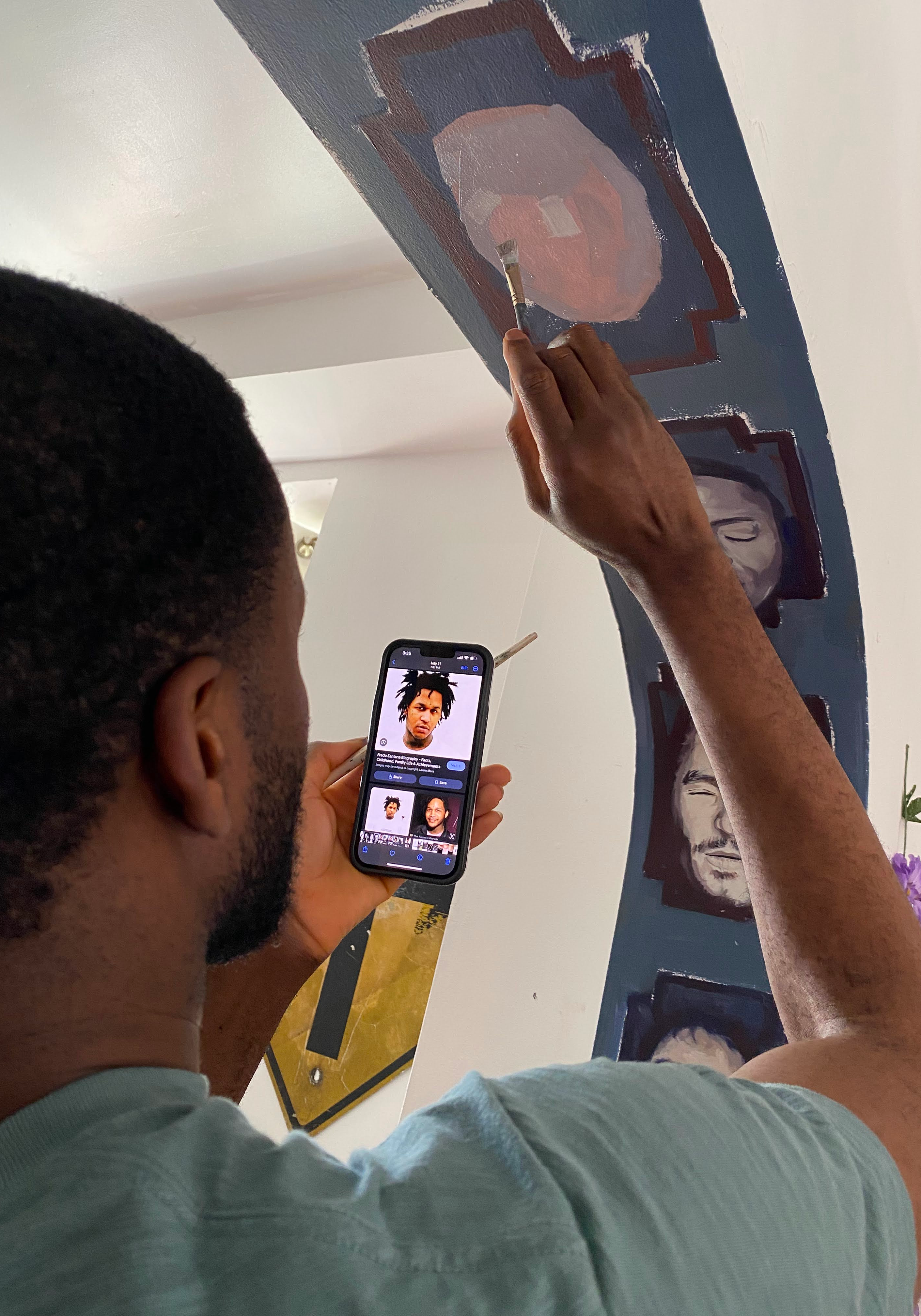
Guelph-based artist Emmanuel Chukwu works on his mural depicting the "27 Club."

“The mission that I'm on is to open people's eyes to the fact that there are existing solutions to our work and our social needs,” Shoy explains. “[Café Club] is trying to be a prototype of what's possible, of what you can do with your home office, living room, home studio or whatever space you have. There's the potential to share it with your neighbours and your local community without turning it into a business.”
“I think there's a lot of power that can come from people investing in their homes and investing in the things that they care about.”
For people like Thanuja Vmoorthy and Rachel Rainbow in search of places of belonging, Café Club, in Rainbow’s words, is exactly like “going to a friend’s house.”
There’s a homey feeling, as Rainbow offers nachos and vegetarian salsa for everyone to share, while Triebe-Pay and Vmoorthy exchange stories about growing up in Scarborough and muse about the importance of third spaces like Café Club.
Conversations between Rainbow, Vmoorthy, Shoy and Triebe-Pay felt like they were between old friends catching up, not like strangers meeting for the first time — which was the case for Rainbow and Umoorthy.
“I like to go to places that feel like home,” Rainbow says. “I like leaving my home to go to another home.”
That, according to Shoy, is the power of Café Club.
Fact-Check Yourself
Sources and
further reading
Don't take our word for it —
check our sources for yourself.
